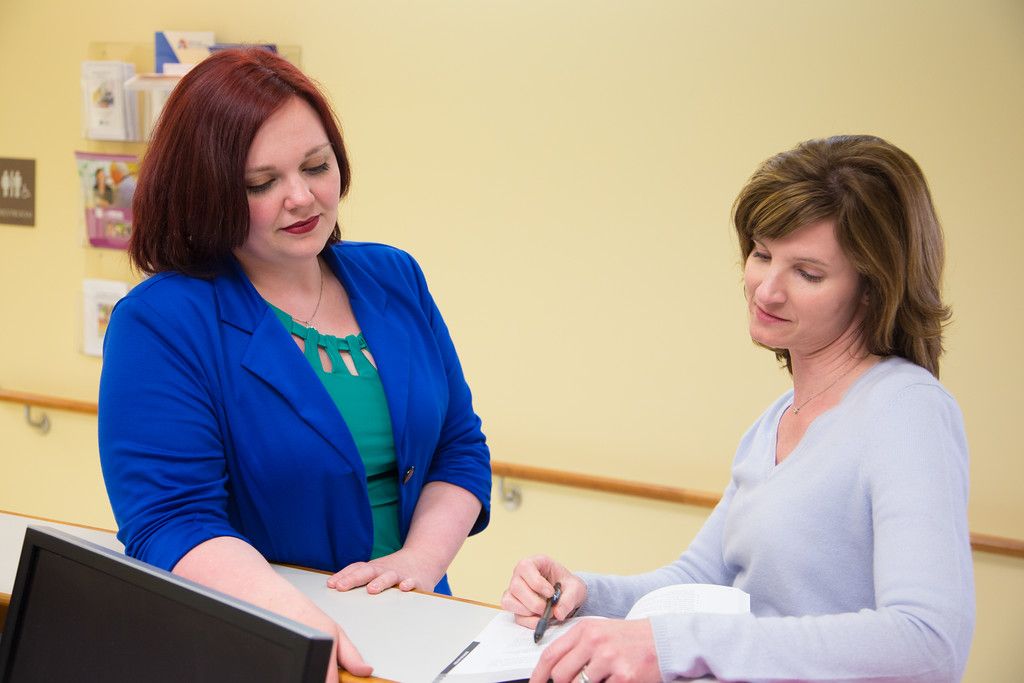Using low-dose CT imaging that's better and safer than x-ray, and bronchoscopy, Roswell Park’s Lung Cancer Screening Program monitors high risk patients, detecting potentially cancerous nodules in their earliest and most treatable stages. Early detection saves lives and provides options for less invasive treatment.
Sabrina Miller, BA, Clinical Liaison, shares six common questions and answers about our program that you, and anyone in your life who may be at high risk for lung cancer, need to know.
1. Am I eligible to participate in Roswell Park’s Lung Cancer Screening Program?
Our program is an incredible opportunity for high risk patients to take control and be proactive. However, eligible participants must meet the following risk factors:
- Aged 50 or older (note: some insurances only cover until age 77)
- History of at least 20 pack/years of smoking
- Have actively smoked within the last 15 years
To calculate your pack/years number, multiply the number of cigarette packs you smoke on a daily basis by the number of overall years you have smoked.
2. What happens if a troubling nodule is detected in my lungs? How do I know if it’s cancer and where can I get treated?Not all nodules are cancer, in fact, many are benign. The only way to know for sure is to have a biopsy, or small piece of the nodule, removed so that our pathologists who focus on lung cancers can analyze it. Our interventional pulmonology team offers several minimally-invasive options — endobronchial ultrasound, bronchoscopy and robotic bronchoscopy — to access the lungs though your airways, evaluate and biopsy any suspicious nodules.
The newest innovation, robotic bronchoscopy, enables physicians to biopsy very small nodules deep inside the lungs, that previously could not be accessed without surgery. Roswell Park is the first center in New York State to utilize the latest technology, Monarch™platform robotic bronchoscopy that allows the physician to visualize the nodule or tumor in real-time as the biopsy is taken. If you have a nodule that needs treatment, our multidisciplinary lung cancer team, thoracic surgeons, interventional pulmonologists, and medical and radiation oncologists, work together under one roof for personal consultation and treatment planning.
3. Does acceptance into the program mean I will have to be monitored and tested for the rest of my life?
We recommend getting a CT scan every year between the ages of 55 to 79, even if your scans are normal. A normal scan one year does not mean that you will have one during the following year. Lung surveillance helps our team assess any changes that indicate lung cancer.
However, if your scans are clean and more than 15 years have passed since your last cigarette, we consider your risk to be low enough that you do not need more scans. Although graduates from our program are still at higher risk than the general population, our concern is not high enough to justify annual screening.
In addition, patients are under no obligation to continue with the program if they wish to stop. We provide a supportive atmosphere, understanding that everyone’s personal journey is different. If at any time you feel uncomfortable with any aspect of the program, please talk to us. We’d love to see everyone graduate after his or her 15-year non-smoking period is up, however we don’t place pressure on anyone. Just remember that we’re here to help.
4. I have been smoking my whole life and have unsuccessfully tried to quit multiple times. I’m interested in the program, but I just don’t think I’d be a good candidate.
Being an active smoker neither precludes nor excuses anyone from being eligible to participate in the Roswell Park Lung Cancer Screening Program. Quitting smoking completely, although always an excellent decision for so many reasons, is not a requirement for getting lung cancer screening. In fact, we are proud to offer a smoking cessation plan within the program that helps current smokers kick the habit for good. If you believe you are at high risk for lung cancer and are interested in the Lung Cancer Screening Program, but have concerns about your smoking history, please call 1-800-ROSWELL (1-800-767-9355) to assess your eligibility.
5. What are your program’s credentials and qualifications?
We proudly bear the Lung Cancer Alliance (LCA) Screening Center of Excellence designation. Awarded to centers that meet standards for screening quality and diagnostic procedures, the LCA Screening Center of Excellence also recognizes programs that provide clear, responsible guidance on screening candidates. Our program was awarded this distinction in early 2015 for meeting all of the above criteria. Our program is also recognized as an American College of Radiology (ACR) Lung Cancer Screening Center.
Unique to the Western New York area, we have also enjoyed close, collaborative relationships with community physicians and practices for the last 15 years. Finally, we are recognized by several local health insurance plans for having an experienced, multidisciplinary team approach to lung cancer screening.
6. While I’m being screened, can you also look at this spot on my arm?
Unfortunately, we can’t help you there, but we do work in close proximity with those who can. Many times, we see patients who, in addition to being at high risk for lung cancer, may be experiencing other health issues. If needed, access to Roswell Park’s other in-house specialists (e.g., Dermatology Clinic, GI Clinic, etc.) is available through referral — an added benefit to Roswell Park’s lung cancer screening program.
For more information about Roswell Park’s Lung Cancer Screening Program, and to determine whether you may be eligible for screening, call 1-800-ROSWELL (1-800-767-9355). You may also complete our online form.
If it is determined that you are a candidate for screening, your first visit will consist of an in-person screening assessment. Any necessary scans or tests will take place at a future date.
